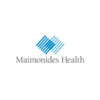
MT2021-08T Cell Receptor Alpha/Beta Depletion PBSC Transplantation for Heme Malignancies
Hematologic MalignancyAcute Leukemia20 moreThis is a phase II, open-label, prospective study of T cell receptor alpha/beta depletion (α/β TCD) peripheral blood stem cell (PBSC) transplantation for children and adults with hematological malignancies

Guanfacine Extended Release for the Reduction of Aggression and Self-injurious Behavior Associated...
Prader-Willi SyndromeAggression21 moreThis is a placebo-controlled clinical trial to assess whether Guanfacine Extended Release (GXR) reduces aggression and self injurious behavior in individuals with Prader Willi Syndrome (PWS). In addition, the study will establish the safety of GXR with a specific focus on metabolic effects.

A Trial of Metformin in Individuals With Fragile X Syndrome
Fragile X SyndromeFragile X Mental Retardation Syndrome10 moreThis study is a controlled trial of metformin in individuals with fragile X syndrome between the ages of 6 and 25 years. Participants will be randomized in a double-blind design to either drug or placebo and will attend three visits to the study site in a 4-month period for a series of tests. The primary objectives are to assess safety, tolerability, and efficacy of metformin in the treatment of language deficits, behavior problems, and obesity/excessive appetite in individuals with fragile X syndrome.

A Trial of Metformin in Individuals With Fragile X Syndrome (Met)
Fragile X SyndromeFragile X Mental Retardation Syndrome10 moreThis study is a controlled trial of metformin in individuals with fragile X syndrome between the ages of 6 and 35 years. Participants will be randomized in a double-blind design to either drug or placebo and will attend three visits to the study site in a 4-month period for a series of tests. The primary objectives are to assess safety, tolerability, and efficacy of metformin in the treatment of language deficits, behavior problems, and obesity/excessive appetite in individuals with fragile X syndrome.

A Controlled Trial of Growth Hormone in Phelan-McDermid Syndrome and Idiopathic Autism
Phelan-McDermid SyndromeAutism Spectrum Disorder (ASD)This clinical trial will use growth hormone as a novel treatment for Phelan-McDermid syndrome (PMS) and idiopathic autism. A double-blind, placebo-controlled crossover trial design will be used in 30 children with idiopathic autism and 15 children with PMS to evaluate the the effects of growth hormone on visual evoked potentials (VEPs), socialization, language, and repetitive behaviors. The researchers expect to provide evidence for the feasibility of using VEPs in PMS, and to show support for growth hormone in ameliorating clinical symptoms of ASD.

RCT Study to Validate niPGT-A Clinical Benefit.
AneuploidyChromosome Abnormality1 moreChromosomal aneuploidies are linked with spontaneous miscarriages and abnormal offspring in human pregnancies. In addition, some types of aneuploidies are reported to prevent implantation. Thus, there is a need to identify the embryos with highest implantation potential on in vitro fertilization (IVF) programs. Since embryo morphology and kinetics have a weak association with embryo ploidy, trophectoderm biopsy plus Next-Generation Sequencing (NGS) is becoming a very popular approach to determine the embryo chromosomal status. This technique is called Preimplantation Genetic Testing for Aneuploidy (PGT-A). Although shown to be efficient, it is invasive for the embryo, requires specific technical skills and it remains expensive. Therefore, the development of a non-invasive, rapid and cheaper method for assessing embryo ploidy status would represent a progress in the field of IVF. The non-invasive approach has been explored by some groups that analyzed the Spent Blastocyst Medium (SBM) where the embryo was incubated up to the time of transfer or freezing. In daily routine, this media is discarded after finishing the culture of the embryo. Importantly, though, this media reportedly contains traces of embryonic cell-free DNA (cfDNA) that can represent the genetic load of the embryo. On the basis of that, the hypothesis of this study is that embryo prioritization according to the analysis of the embryonic cfDNA in the SBM could improve ongoing pregnancy rate in 10 percentual points compared to standard blastocyst transfer based on morphology.

Embryo Selection by Noninvasive Preimplantation Genetic Test
InfertilityChromosome AbnormalityThe objective of this study is to explore whether non-invasive chromosome screening (NICS) can be used as an effective indicator for embryos selection besides morphology through a multicenter randomized controlled trial, by comparing the differences of live birth rate, pregnancy rate and miscarriage rate between the two groups of embryo selection by "NICS+ morphology" and embryo selection only by "morphology" in IVF cycle.

Biocollection in MyeloDysplastic Syndrome (P-MDS)
Myelodysplastic SyndromesMyelodysplastic Anemia4 moreMyelodysplastic syndromes (MDS) are chronic myeloid hemopathies characterized by ineffective hematopoiesis (with peripheral cytopenias) and which contrast with a marrow of normal richness. MDS is considered one of the four most common blood diseases. The incidence is estimated at 4,059 cases / year in 2012 with an average age of 78 years in men and 81 years in women (INCA report, Cancers in France in 2015). The incidence increases with lengthening of the lifespan. The main risk of MDS is transformation to acute leukemia in 30 to 40% of cases. Treatment options depend on clinical, hematologic and chromosomal abnormalities. The prognosis is considered to be at low or high risk of developing acute leukemia. This distinction will therefore have an impact on the therapeutic solution (s). MDS exhibit clinical, morphological and genetic heterogeneity. It is therefore necessary to form subgroups of patients to better understand the physiopathogenesis of this pathology. The constitution of a biocollection will make it possible to search for clinical and biological prognostic markers in order to identify patients progressing to acute myeloid leukemia.

An Open-Label Study of Oral NNZ-2591 in Phelan-McDermid Syndrome (PMS-001)
Phelan-McDermid SyndromeA study of the safety, tolerability and pharmacokinetics of NNZ-2591 and measures of efficacy in children and adolescents with Phelan-McDermid Syndrome.

AnovaOS Network Powered Patient Registry
Infectious DiseaseNeoplasms25 moreThe objective of this study is the development, implementation and management of a registry of patient data that captures clinically meaningful, real-world, data on the diagnosis, nature, course of infection, treatment(s) and outcomes in patients with complex disease globally.
